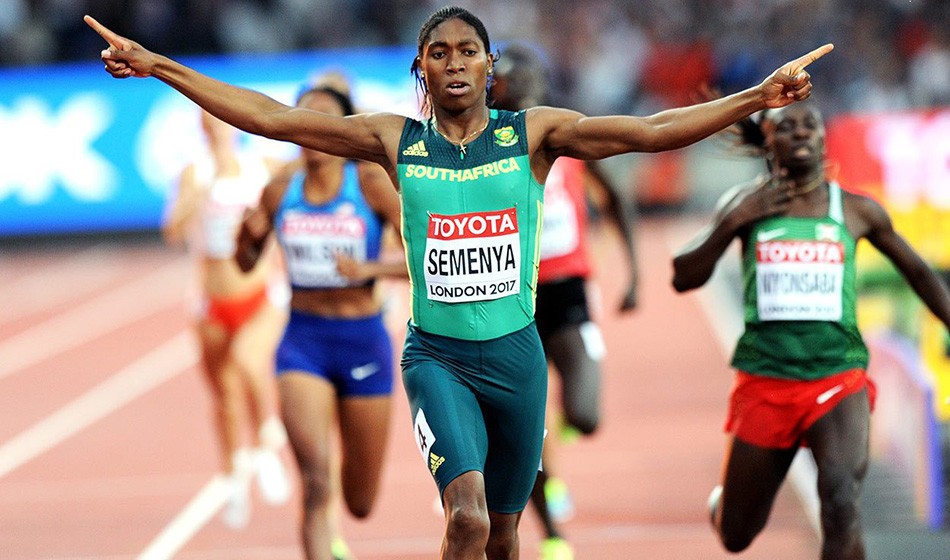News
‘Let Her Run’: South Africa Holds Its Breath as Caster Semenya Awaits Final Human Rights Ruling

Today, The World Watches As South Africa’s Golden Girl Waits for a Ruling That Could Change the Future of Gender and Sport.
Caster Semenya, the fiercely private yet globally renowned two-time Olympic champion, is once again at the centre of a deeply polarising debate — not for her speed on the track, but for who the world says she must be to compete.
This time, the stakes are higher than ever.
The European Court of Human Rights (ECHR) is expected to deliver its final ruling today on whether Semenya, and other athletes like her, can be forced to medically alter their natural testosterone levels in order to participate in women’s events. The decision is the culmination of a years-long legal fight that has moved from Lausanne to Strasbourg — and may reshape the global sporting landscape forever.
The Athlete, the System, and the Science
At 34, Semenya is more than just a middle-distance runner. She’s a national symbol of pride, perseverance and identity. But since 2018, when World Athletics introduced new gender eligibility rules targeting athletes with differences in sexual development (DSD), Semenya’s career has been put on pause.
The regulations require DSD athletes with XY chromosomes and high natural testosterone to undergo medical treatments to lower their levels — or stop competing.
Semenya refused.
“I am a woman. I am fast. I was born this way,” she famously declared.
Since then, she’s battled not just sports federations, but also the courts. The Court of Arbitration for Sport ruled against her in 2019. Switzerland’s Federal Court upheld that decision. In 2023, the ECHR acknowledged that her human rights had been violated — but stopped short of giving her the green light to return to the track.
Now, after appeals by Switzerland and World Athletics, the court’s 17-member Grand Chamber is expected to make a definitive ruling.
Fairness or Discrimination?
Supporters of the World Athletics policy argue it’s about ensuring a level playing field in women’s sport. Critics say it’s something else entirely — invasive, degrading, and built on shaky science.
Human Rights Watch has slammed the policy as a violation of privacy. Local sociologists and gender experts have pointed out that there is no definitive evidence that high natural testosterone guarantees victory.
Instead, they argue, the policy targets a small group of athletes — often Black, often from the Global South — and frames their bodies as a threat to fairness.
And in the middle of it all stands Semenya.
Mzansi speaks: “Let her run”
As the ruling looms, South Africans have rallied behind their champion.
“She’s never cheated. She’s just fast,” wrote one user on X, “History will remember how we treated women like Caster,” said another.
Even beyond our borders, Semenya has become a powerful voice for the right to compete without being forced to medically conform. Her case has drawn comparisons to other controversies, including the 2024 exclusion of Algerian boxer Imane Khelif from the Paris Olympics under similar circumstances.
More Than Medals
Today’s ruling is not just about golds and podiums. It’s about what it means to be recognised — fully, unapologetically — as yourself in a world that still struggles to define womanhood.
Caster Semenya’s case will set a precedent for how sports federations, courts, and cultures around the world approach gender and biology in sport.
And whatever the outcome, one thing is certain: she has already redefined the race.
Source:The South African
Follow Joburg ETC on Facebook, Twitter , TikTok and Instagram
For more News in Johannesburg, visit joburgetc.com



























